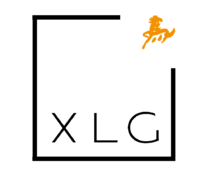April 8, 2025
Best Hair Growth Treatments: Effective Home Remedies and Professional Solutions
Dealing with hair loss can be a frustrating experience. Fortunately, there are many effective treatments available, ranging from simple home remedies to professional services. For those wondering about effective treatments, scalp massage, and rosemary oil can be beneficial. Other natural methods include using aloe vera and coconut oil, which are known for their nourishing effects.
For individuals seeking commercial products, hair loss shampoo for any hair type can be a good option. For example, the Spartan Root Activator Shampoo promises to protect and stimulate hair follicles, and you might notice signs of growth in 6-8 weeks Spartan Root Activator Shampoo. This could be a practical addition to a hair care routine.
Beyond natural and over-the-counter solutions, professional treatments are also available. These may include consultation with a dermatologist or exploring surgical options in severe cases. Those considering these treatments might find it helpful to weigh all their options and choose what best suits their needs and lifestyle.
Understanding Hair Growth
Hair growth involves a natural cycle that includes phases of growth, rest, and shedding. Various factors such as genetics, diet, and lifestyle can affect hair health and how quickly or thickly hair grows.
The Hair Growth Cycle
Hair growth is divided into three main phases: anagen, catagen, and telogen. During the anagen phase, which lasts 2-7 years, hair actively grows. The duration of this phase determines hair length. In the catagen phase, which spans about 2-3 weeks, hair growth stops, and the follicle shrinks. Finally, the telogen phase is a resting period lasting around 3 months. After this, hair falls out, and new hair starts growing from the same follicle. Hair follicles will repeat the cycle, which is generally most active during the anagen phase.
Factors Affecting Hair Health
Multiple factors influence hair growth and health. Genetics play a significant role, with inherited traits affecting hair thickness, texture, and growth rate. The diet also impacts hair health; a lack of important nutrients like protein, iron, and vitamins can lead to hair loss or weak hair. Environmental factors such as pollution, sun exposure, and the use of heat-styling tools can damage hair. Stress, hormonal changes, and certain medical conditions can further affect hair growth, leading to thinning or hair loss in some cases. Recognizing these factors can help in managing hair health effectively.
Effective Hair Growth Treatments
Achieving optimal hair growth often involves a combination of approaches ranging from natural remedies and topical treatments to professional interventions and dietary considerations. Each method offers its own benefits, making it easy to find a solution that fits individual needs.
Natural Home Remedies
Natural home remedies are popular for promoting hair growth and can be easily incorporated into daily routines. Scalp massage is a simple yet effective way to stimulate blood circulation and encourage hair growth. Using natural oils like coconut or rosemary during the massage can further nourish the scalp.
Aloe vera is another common remedy known for soothing the scalp and conditioning hair. Applying aloe vera gel directly to the scalp can reduce dandruff and unclog hair follicles. Essential oils like lavender or peppermint can also be added to one’s routine. These oils not only promote hair growth but can also help manage stress, which is often a contributor to hair loss.
Topical Treatments and Serums
Topical treatments and serums are widely used for treating hair loss and promoting regrowth. Products containing minoxidil are well-known for their ability to slow down hair thinning and sometimes encourage regrowth. These treatments typically require consistent application over several months to show results.
Serums with biotin or caffeine are also gaining popularity. Biotin supports strong hair, while caffeine is believed to stimulate hair follicles. Applying these serums directly to the scalp can help improve hair health.
Topical treatments often include antioxidants and vitamins that protect hair from damage and support a healthier scalp, encouraging an environment conducive to growth.
Professional Treatments and Procedures
For those seeking professional help, various treatments and procedures are available. Laser therapy is a non-invasive method that uses light to stimulate hair follicles, potentially improving hair density and thickness.
Platelet-rich plasma (PRP) therapy involves injecting one’s own plasma into the scalp to promote regrowth. This procedure is believed to increase blood supply to the hair follicles, thereby improving hair counts.
Hair transplantation is another option suitable for more advanced hair loss. This surgical procedure involves moving hair follicles from one part of the body to the scalp, guaranteeing a natural look.
Dietary Supplements and Nutrition
Nutrition plays a key role in hair health. Biotin supplements are frequently recommended due to their ability to strengthen hair and nails. While biotin-rich foods include eggs and nuts, supplements can provide an additional boost for those in need.
Iron and zinc are minerals that contribute greatly to hair growth. Inadequate levels can lead to hair thinning, so guaranteeing a balanced diet or taking supplements, if necessary, can be beneficial.
Protein intake is also important because hair is made primarily of protein. Eating foods like lean meats, fish, and legumes supports strong, healthy hair.
Conclusion
There are many ways to encourage hair growth, combining natural and professional methods. A balanced diet that includes high-protein foods is important for healthy hair. Regular scalp massages and using essential oils, like coconut and lemon oil, can also make a difference.
Hair loss treatments can vary widely, and each person might find different methods work better for them. Exploring a mix of home remedies and professional solutions is often beneficial. Consulting a healthcare professional provides additional guidance.





